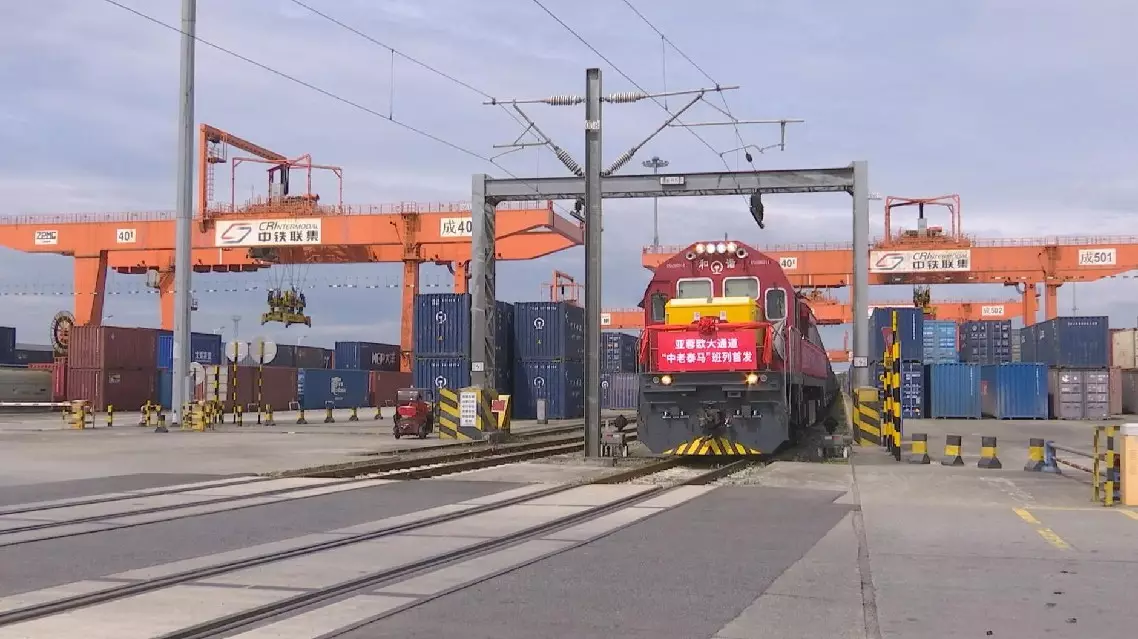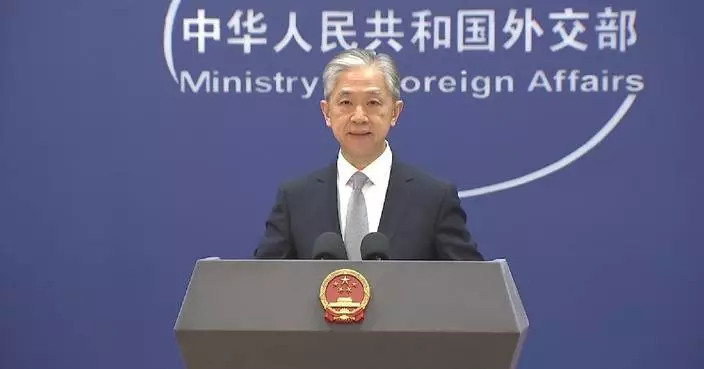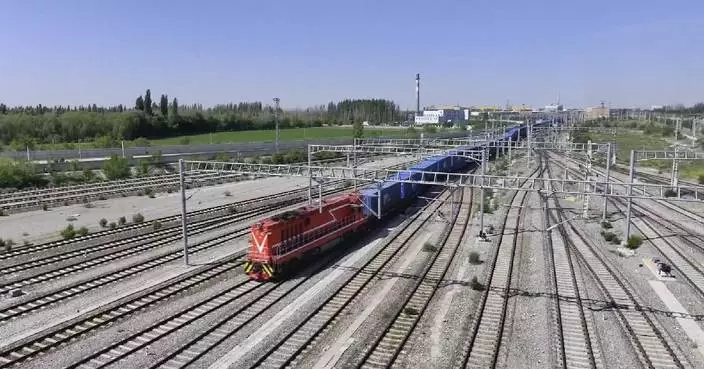The first China-Laos-Thailand-Malaysia express freight train departed from the Chengdu International Railway Port in Chengdu, capital of southwest China's Sichuan Province, on Tuesday, marking a significant milestone in regional trade connectivity.
The maiden train, carrying a full load of 30 containers of LCD monitors and new energy vehicles, will travel via the China-Laos Railway, then transition to rail networks in Laos, Thailand, and finally reach Port Klang in Malaysia.
This all-rail journey will take only five days to Thailand and eight days to Malaysia, significantly reducing transit time by around 50 percent compared to traditional sea route which started from Qinzhou City in south China's Guangxi Zhuang Autonomous Region.
"[Previously, our goods to Malaysia] were transported from Chengdu to Qinzhou by rail, and then from Qinzhou to Malaysia by sea. Now, with the China-Laos-Thailand-Malaysia express freight train, we can save about a week for the trip which used to take about 15 days," said Du Peiling, executive director of Sichuan New Bond International Freight Forwarding Co., Ltd.
The launch of the new line will further expand the reach of China-Laos rail services, promoting economic and trade exchanges between China and Laos, Thailand, and Malaysia.
It will also accelerate the development of the regional inland railway network, providing new support for the economic interaction and growth between Sichuan and Southeast Asia.
Chengdu's international train services have now reached 112 cities, with four new stops added this year, establishing a comprehensive international land-sea freight distribution system.

First China-Laos-Thailand-Malaysia express freight train departs from Chengdu
While the recent intervention by the Bank of Japan (BOJ) is not likely to feed into the market very soon, the Federal Reserve needs to make some concessions to avoid a potential global currency crisis, said financial experts.
The BOJ last Monday announced a reduction of the amount of Japanese government bonds it offered to buy in a regular purchase operation, seen by many market participants as bank's latest effort to counter the weakening yen.
"Look, a slight reduction in bond purchases is not likely to go and do too much when it comes to financial markets, it's more what it signals from the Bank of Japan and the outlook there. If we do go on to see a follow-up rate hike coming through which wasn't priced in all that long ago, you might start going to see some impact on the Japanese yen. At this point of time, we're seeing the bond yields are drifting up, ten-year JGB (Japan Government Bond) yields and five-year JGB yields are now trading at multi-decade highs," said David Scutt, a senior market analyst with Gain Capital, a brokerage that specializes in foreign currencies.
Stephen Innes, managing director at SPI Asset Management, a company offering advisory services on currency and commodity trading, believes that despite the positive signs across the global economy, Asia will need to "keep an eye" on the impact a weakening yen could have on other regional currencies. (https://www.fxstreet.com/company/spi-asset-management)
"We're starting to see adjustments in the global economy, improvements in Europe and China, and this is quite significant. If we can continue along with these improvements, we're going to see the euro climb a little bit higher, and we're also going to see the [Chinese] yuan probably stop weakening. And this is something we also have to keep an eye on is the yen's correlation with other currencies in Asia. The fear that's happening in the markets right now is that weakened yen could mitigate almost competitive currency devaluations. So we have to keep our eye on the ball here and I think central banks are very cognizant of this," Innes said.
As for what the Fed needs to do, Innes believes that the U.S. shouldn't just care about its own economy. The currency issue is the concern of the world as a whole.
"I think [it's] the last thing the [U.S.] Federal Reserve wants to do. Although their role is to defend the U.S. economy, not necessarily the global economy, but I think they have to make some concessions as far as these hiking measures [go], if they do ever think about going down that road, in the sense this could actually stimulate or actually result in a currency crisis, and that's something you really want to avoid on a global basis," he said.

Bond purchasing reduction shows hawkish signals, Fed needs to move cautiously: experts










